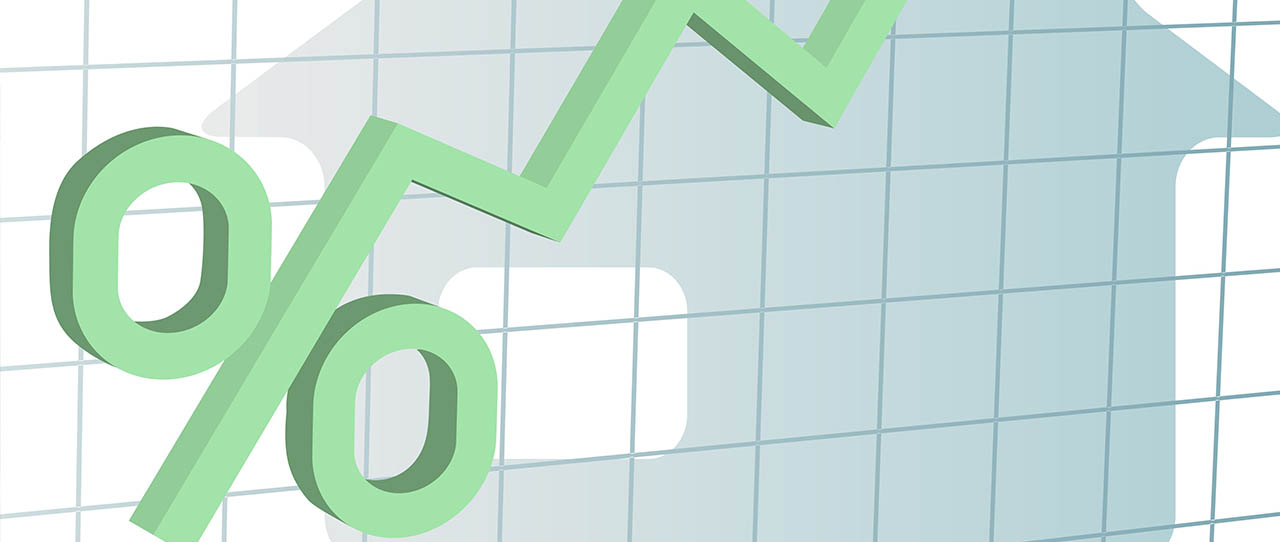

Posted: 2018-07-20 | Author: Scott Roberts
Today, the economy looks like it has finally turned a corner and annual economic growth this year could exceed 3% of GDP for the first time since the mid-2000s.
The economic recovery has already created inflationary pressures, which could push mortgage rates higher in the next couple years. This would undoubtedly impact homebuyers and their ability to afford the home they want. However, the amount of impact it will have is still a matter of debate, and it depends largely on how much interest rates actually go up.
How Does the Federal Reserve Affect Mortgage Rates?
Before we look at how rising interest rates affect your ability to buy a home, it is important to understand the role of the Federal Reserve in this scenario. The Fed does not directly control interest rates for home mortgages, they only control the Federal Funds Rate, which is the rate banks pay when they lend money to each other.

In general, the lower the Federal Funds Rate, the more money banks lend from each other, which they can turn around and re-lend to businesses and consumers. And when more money is available for borrowing, it tends to put downward pressure on lending rates, including rates on home mortgages.
Though the Federal Funds Rate may indirectly affect home mortgage rates, the fact that the Fed is raising rates this year does not guarantee that the same thing will happen with the mortgage market. Mortgage rates are tied more directly to the 10-year Treasury yield, the rate paid to buyers of U.S. Treasury bonds. Foreign governments are major buyers of our Treasury bonds, and the more they buy, the higher the demand for bonds, and the lower the yield (i.e., interest rate).
Whether U.S. Treasury yields will stay low or rise in the coming years remains to be seen. If foreign governments continue to view U.S. Treasury bonds as a safe investment, there is every reason to believe they will continue buying. On the other hand, the recent imposition of tariffs and subsequent trade war could cause some heavy buyers, such as China, to buy less of our bonds.
The Impact of Rising Interest Rates on Home Buying
As we can see by the complicated factors that go into the equation, whether interest rates will continue to rise and by how much is still an open question. Assuming they do go up by a one or two percentage points in the next year or two, how will that affect your ability to buy a home? All other factors being equal, higher interest rates mean you will pay more for the house you want in the form of a higher monthly payment.
Here is an example of how that might play out. If you want to buy a home that is priced at $300,000 and you have 10% ($30,000) down, you will need to borrow $270,000. For At a rate of 4.75% fixed over 30 years, your monthly payment would be $1,435, and the total cost of the mortgage would be $516,431. If the 30-year fixed rate rises just a quarter point to 5%, the monthly payment goes up to $1,476, and the total cost of the mortgage increases to $531,453.
The Potential Upside of Rising Interest Rates
The key phrase in the previous example was “all things being equal”. Of course, when interest rates go up, not all other factors remain equal. One thing to look at is what may be driving rates up in the first place; inflationary pressures. These same pressures are also creating better economic conditions for many consumers by lowering unemployment and driving up wages. So if interest rates rise, hopefully this is offset by increased income.
On the other side of the equation is what may happen as a result of higher interest rates. For example, if wages in certain parts of the country do not increase at the same (or higher) pace as mortgage rates, the likely result would be fewer people who can afford current Phoenix home prices and downward pressure on the price of homes. A lower home price would of course mean less money you need to borrow, which would also help offset the higher mortgage rate.
Keeping a Proper Perspective
While higher interest rates may adversely impact your ability to buy a home – especially in the current Phoenix market - it is important to remember that mortgage rates are still historically low. In addition, the mortgage rate is just one of many factors to consider in the home buying process. What is more important is your personal circumstances (e.g., income, credit score, down payment, family needs, etc.). To determine if this is the right time for you to buy a home, speak with one of our qualified mortgage experts to fully assess your specific needs.

